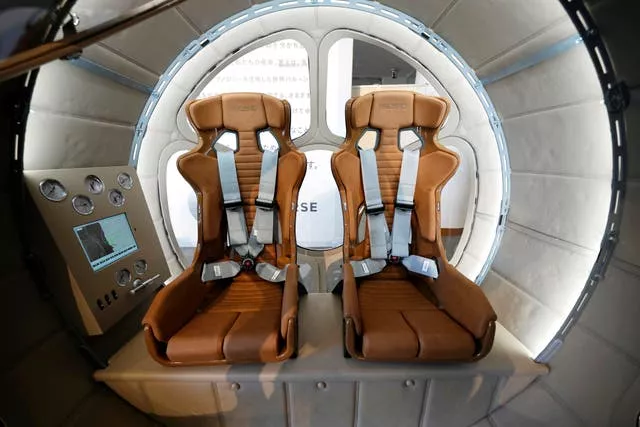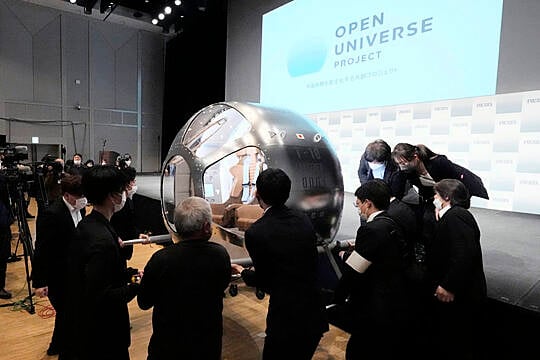A Japanese startup company has announced plans to launch a commercial space-viewing balloon flight that it hopes will bring down to Earth an otherwise astronomically expensive experience.
Company president Keisuke Iwaya told reporters passengers do not have to be billionaires, go through intense training or have the language skills needed to fly in a rocket.
“It’s safe, economical and gentle for people,” he said. “The idea is to make space tourism for everyone.”
He said he wants to “democratise the space”.

Iwaya Giken, based in Hokkaido capital Sapporo in northern Japan, has been working on the project since 2012 and says it has since developed a two-seater cabin and a balloon capable of rising up to the altitude of 15 miles, where the curve of the Earth can be clearly viewed.
While passengers would not be in outer space — the balloon only goes up to roughly the middle of the stratosphere — they would be higher than a jet plane flies and have an unobstructed view of outer space.
The company teamed up with major Japanese travel agency JTB, which announced plans to collaborate on the project when the company is ready for a commercial trip. Initially, a flight would cost 24 million yen (£148,790), but Mr Iwaya said he aims to eventually bring it down to several million yen (tens of thousands of pounds).
While Japanese space ventures have fallen behind US companies like SpaceX, Mr Iwaya said his aim is to make space more reachable.
SpaceX launched three rich businessmen and their astronaut escort to the International Space Station in April for 55 million US dollars (£45.5 million) each — the company’s first private charter flight to the orbiting lab after two years of carrying astronauts there for Nasa.

But unlike a rocket or a hot air balloon, the Iwaya Giken vessel will be lifted by helium that can be largely reused, company officials said, and flights will safely stay above the Japanese territory or airspace. The first trip is planned as early as later this year.
An airtight, two-seater cabin that can carry a pilot and a passenger would take off from a balloon port in Hokkaido, rise for two hours to as high as 15.5 miles — part of the stratosphere and the gateway to space, whose definition varies but is considered to start around 62 miles above the Earth — and stay there for an hour before a one-hour descent.
The drum-shaped plastic cabin is 4.9 feet in diameter and has several large windows to allow passengers to see the space above or the blue Earth below, the company said.
Applications for a space-viewing ride opened on Tuesday and will be accepted until the end of August.
The first five passengers selected will be announced in October, company officials said, and flights will be approximately a week apart, depending on the weather.







